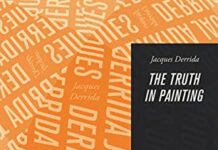
Ebook Info
- Published: 2020
- Number of pages: 395 pages
- Format: PDF
- File Size: 20.23 MB
- Authors: Jacques Derrida
Description
The most influential of contemporary philosophers, Jacques Derrida, explores the idea of friendship—and its political consequences, past and future—through writings by Aristotle, Nietzsche, Cicero, and more. Until relatively recently, Jacques Derrida was seen by many as nothing more than the high priest of Deconstruction, by turns stimulating and fascinating, yet always somewhat disengaged from the central political questions of our time. Or so it seemed. Derrida’s “political turn,” marked especially by the appearance of Specters of Marx, has surprised some and delighted others. In The Politics of Friendship Derrida renews and enriches this orientation through an examination of the political history of the idea of friendship pursued down the ages. Derrida’s thoughts are haunted throughout the book by the strange and provocative address attributed to Aristotle, “my friends, there is no friend” and its inversions by later philosophers such as Montaigne, Kant, Nietzsche, Schmitt and Blanchot. The exploration allows Derrida to recall and restage the ways in which all the oppositional couples of Western philosophy and political thought—friendship and enmity, private and public life—have become madly and dangerously unstable. At the same time he dissects genealogy itself, the familiar and male-centered notion of fraternity and the virile virtue whose authority has gone unquestioned in our culture of friendship and our models of democracy The future of the political, for Derrida, becomes the future of friends, the invention of a radically new friendship, of a deeper and more inclusive democracy. This remarkable book, his most profoundly important for many years, offers a challenging and inspiring vision of that future.
User’s Reviews
Reviews from Amazon users which were colected at the time this book was published on the website:
⭐If you can get beyond the often riveting nature of Derrida’s style of writing, this text provides a profound insight into the relationship of thought and community. For readers unfamiliar with Derrida’s concepts like deconstruction, this text offers a unique approach to his overall philosophy.
⭐Love Derrida’s thought processes. He thinks like no o ther man. His thoughts on friendship and the deconstruciton where excellent. Gave me thought and value.
⭐This purchase arrived in a timely manner.”Even in an empty forest a master finds joy, because he wants nothing.”
⭐Half a decade after grad school I can say with confidence: Derrida is ludicrous, out of touch with reality, and so filled with confused thought that it pours out as a undecipherable spew.
⭐Great!
⭐This book has its origins in the seminar that Jacques Derrida gave during the academic year 1988-89, as part of his late attempt to grapple with issues of political philosophy that he also deals with in his Specters of Marx. The book itself is an extended replay of the first session of the seminar, in which the French philosopher (who died in 2004) gave an overview of the themes that he would cover at more length during the year, beginning with the apostrophe: “O my friends, there are no friends” that Montaigne attributes to Aristotle.I was fortunate enough to attend that lecture and some of those that followed. The desire to retrieve that experience from the past and to compare the understanding of the written text with the impression left by the oral intervention certainly drove me to read this volume, with the English language providing an additional distance that I somehow find necessary to break with the immediacy of my native French.The stage was set twenty years ago at the salle Dussane of the Ecole Normale Superieure, before an audience composed of fellow academics, faithful followers and curious onlookers, drawn together by the intellectual aura of the French philosopher who was at the peak of his public career. The atmosphere was quite different from the scenes of mass hysteria that are said to have accompanied the seminar of Jacques Lacan in that very same conference room some twenty years before, with swooning ladies fainting over the words of the Maitre and fanatical psychoanalysts arguing furiously over Freud’s legacy. The cosmopolitan nature of the audience, composed mainly of foreigners, bore witness to the international following that Derrida’s brand of philosophy already attracted, as well as to the conservatism of French philosophy students, who tended to shun this lecture in favor of more academically correct seminars.Reading Derrida or other French authors like Bataille, Foucault, Barthes or Bourdieu is sometimes considered as a kind of rite of passage into the world of rebellious intellect. Such motivation was not absent from my decision to attend that seminar, which had no connexion whatsoever with my university major in economics. But if I or others were in for the show, for a kind of post-modern happening, then the lecture was certainly a deception. As a philosopher molded in the classical tradition, deeply familiar with the canon of great authors that he quoted in their original language (be it Greek, Latin, German or English), Derrida expected the same kind of familiarity, and the same language skills, from his listeners.I remember my sense of frustration and awe as I realized that my philosophical background, limited to a course in classical philosophy during high school and preparatory class as well as personal readings of contemporary French authors, hadn’t prepared me at all to dealing with the many quotes, allusive references and close readings of topical excerpts that were thrown at us during that first session. I came home with a long reading list of quoted authors, some of whom I later skipped entirely like Aristotle, others which I discovered during that academic year and with whom I am still familiar, like Carl Schmitt.Friendship has been celebrated by many classical authors, starting with Plato, Aristotle and Cicero, very often as an act of mourning over the disappearance of a beloved one or as a celebration of a great couple of friends, always men, who provide the model of ideal friendship: Orestes and Pylades, Theseus and Pirithous, Damon and Pythias, Laelius and Scipio, Montaigne and La Boetie, etc.But the apostrophe attributed to Aristotle, articulating a performative contradiction, also opens friendship to its own deconstruction: if there are no friends, how can one address friends? And how to draw the line between the friend and the enemy, a basic opposition to which Carl Schmitt attributes a central role in the definition of politics? Even the origin of the quote is obscure, as its attribution to Aristotle by Diogenes Laertius and subsequent authors is purely based on hearsay and its aporetic nature contradicts the clarity of the Greek philosopher’s prose. The destiny of this ambiguous quote provides a common thread to the book and indeed to a significant part of Western philosophy, as it runs through the work of authors as different as Montaigne, Florian, Kant, Nietzsche, Blanchot and Deguy. A large part of Derrida’s book is devoted to the commentary of Nietzsche’s even more paradoxical statement, in Human All Too Human, that subverts the quotation by reversing it:’Friends, there are no friends!’ thus said the dying sage;’Foes, there are no foes!’ say I, the living fool.Here the friend is converted into the enemy, the sage passes himself off as a fool, and one is not sure whether to rejoice or to mourn the disappearance of the enemy which, if one follows Carl Schmitt, puts into question the very existence of the political.The question of counting or enumerating people–how many friends are there, how many are listening to the apostrophe that there are no friends–is also one of the lecture’s recurring theme, which ironically points toward the obligation made to the teacher to register the attendance and count the number of students in the classroom (an obligation that Derrida conspicuously avoided) as well as to the ideal number of citizens that a functioning democracy cannot exceed (which, according to Aristotle, was less than 10 000). As Derrida points out, there is no democracy without respect for irreducible singularity, which by definition one cannot count, but there is no democracy without the calculation of majorities and the addition of equal, identifiable citizens. This paradox suggests the possibility of a “community without community” which, according to Derrida, would characterize the “democracy to come”.The key to this insistence on number is only given at the end of the book, when Derrida shows that, according to the way the omega is accentuated in the original Greek quote, the paradoxical interjection: “O friends, no friends” can also be translated, more prosaically, as “Many friends, no friends”, or “he who has many friends can have no true friends.” This philological coup de theatre does not eliminate the fecundity of the original quote, which functions as a textual machine producing its own discourse as if granted with a life of its own.
⭐I am studying Jean-Luc Nancy(N), Derrida’s(D) good friend and colleague. D published a volume about N, ON TOUCHING, in which he critiques N for employing the term “fraternity” positively to indicate an acceptable context for human association. N has responded that he has made it clear in many publications that he is sensitive to the issues that D finds inescapable with the use of “fraternity.” As Ian James writes in THE NANCY DICTIONARY, “Fraternity is a relation in which the incommensurable singular plurality of being is affirmed as an infinite sharing.” Somewhere in reference to that disagreement, I was directed to read this volume by D on friendship.The book is a formal and scholarly investigation of the classical “canon,” as D calls it, on the topic of friendship (Aristotle, Cicero, Kant, Montaigne, Nietzsche, etc. up to Bataille, Blanchot, and Levinas). Since that scholarly investigation is not my interest, after reading the opening chapters, I switched to reading only the footnotes for each chapter, many of which are quite extensive. When I finally arrived at the final two chapters of the book, I began to read again. There I found what I had been looking for.D offers a compelling argument that the word “fraternity” has always had masculine overtones in our tradition, which today amount to ridiculous denigrations of the feminine; D calls it “the virility of virtue.” Alongside that he reveals, through a scholarly deconstruction of Kant’s METAPLHYSICS OF MORALS, an example of the contradiction that lingers at the heart of ethics: the requirement of distance for the proper maintenance of friendship is not applied to love, even while no account is given of a distinction between the two to permit such discontinuity. D asks, “Why would the infinite distance which opens respect up, and which Kant wished to limit by love, not open love up as well?” Love then becomes the problem and not the answer crooned in popular, as well as scholarly, texts.The element of discontinuity persists even to the time of the writing of this book by D, who does not presume to supply an answer. All of which echoes with great emphasis Simon Critchley’s complaint in INFINITELY DEMANDING that we have no adequate political philosophy today. In summary of this work by D, one might say, “It is little wonder that it is so.” All our categories for understanding and imagining a basis for loving human relationships, or even for democracy, are tattered and torn. D is left only the option of a question to end the study: “When will we be ready for an experience of freedom and equality that is capable of respectfully experiencing that friendship, which would at last be just, just beyond the law, and measured up against its measurelessness? O my democratic friends .. .”
⭐The last sentence of the description reads that Derrida wants a more inclusive democracy – quite possibly the least true sentence ever written.
⭐I saw this book referenced somewhere and was intrigued by its title. The reviews here on Amazon were few but all positive. No preview for this book was available, so I just bought it.Less than a minute into the book and I’ve lost all hope of finding anything interesting behind the pretentious mumbo-jumbo of sophisticated words. Previous reviewer marvelled at the author’s ability to deliberate over a single statement for 300 pages, and that truly seems to be the case. The same reviewer mentioned that he especially liked chapter 8. I am giving you here the first few sentences of the first paragraph of that chapter and be assured that it is no different in style from the rest of the book:“In truth, those who have subscribed in complete confidence to the vocative reading that we have been pretending to follow from the outset (“Oh my friends, there is no friend”) have not even been properly haunted by the possibility of such a secret. They have gone so fast as to be unaware of it’s existence. Unless the haunting begins where the extravagance of the sentence thus accentuated is troubling enough to become unforgettable to the point of obsession, thereby allowing unsuspectable to become unconsciously suspect. And those who have allowed it, those who have preferred the interjection to the dative, the eloquence of the interpellation to the attributive assertion, are by no means few in number”.
⭐Derrida has a reputation for complexity such that books are available which seek to elucidate his meaning, so perhaps familiarity is making me suppose his writing fairly accessible. What I love about it is that he takes a six (seven) word sentence attributed to a person attributing it to Aristotle and provides a three hundred page commentary, but it is fascinating; especially good is chapter eight.
⭐This is Derrida’s most thoughtful analysis to date of the paradoxes and tensions underlying the historical articulation of the foundational role of the idea of friendship in the West’s formation of the ideas of politics and community. Derrida presents the genealogy of what can only be called a community to come, one no longer established on theological reassurances of the identity of the human and the infinite, but rather on a democratic community of individuals committed to an ideal above them, a community that affirms and loves human finitude without having to endow it with the aura of metaphysical presence. Derrida traces the ancient history of this still novel notion of friendship from the pre-Socratics to Nietzsche and Heidegger. Using as his leitmotif Aristotle’s often-cited (though apocryphal) epigram “O my friends, I tell you there is no friend,” Derrida provides detailed readings of Montaigne, Carl Schmitt, and Maurice Blanchot, each of whom used the Aristotelian paradox in reflections on the interdependency of the ideas of love and friendship, or friend and enemy. Derrida has never written more illuminatingly on Aristotle, Nietzsche, and Heidegger than he does here. His reading of the traditional philosophical arguments about the relation of friendship and politics detects in them the “messianic,” or “teleiopoetic,” promise of a freethinking community yet to come. All academic collections. N. Lukacher; University of Illinois at Chicago
⭐Really changed the way I look at many things, not just friendship
Keywords
Free Download The Politics of Friendship in PDF format
The Politics of Friendship PDF Free Download
Download The Politics of Friendship 2020 PDF Free
The Politics of Friendship 2020 PDF Free Download
Download The Politics of Friendship PDF
Free Download Ebook The Politics of Friendship





